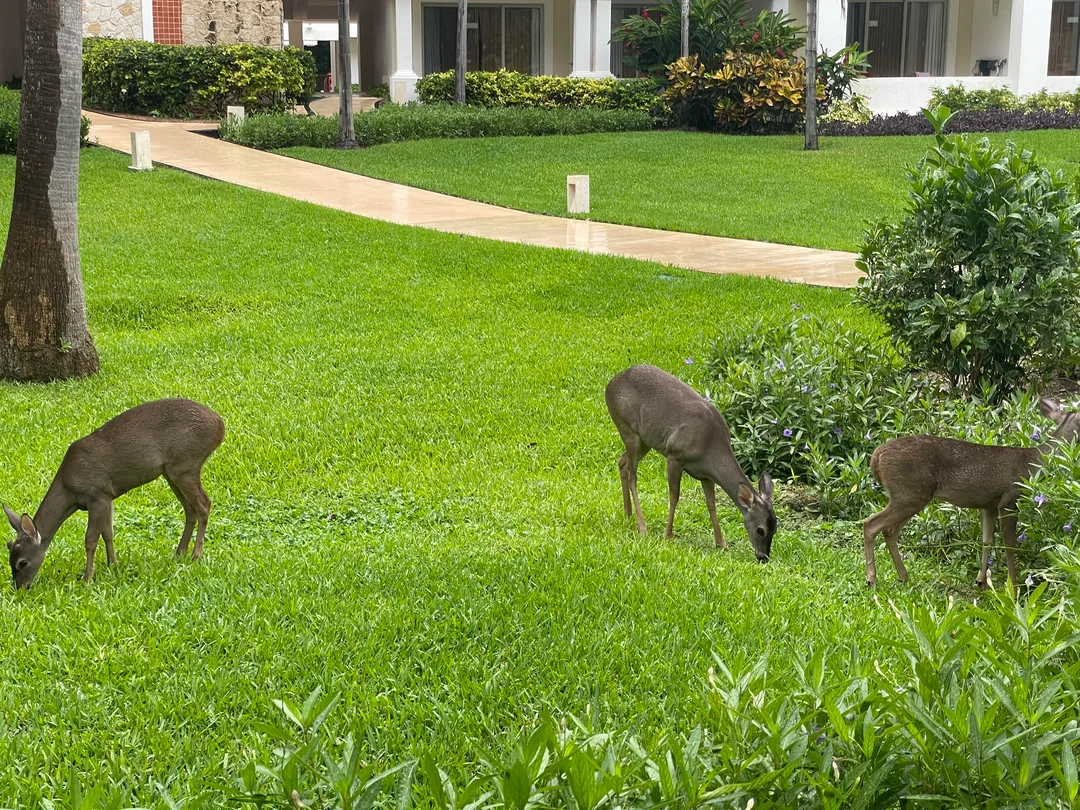Playa del Carmen, Q. Roo — Oscar Rébora, Secretary of Ecology and Environment (SEMA) for the Government of Quintana Roo, has asserted that under no circumstances will any developer or investor be allowed to override or violate established environmental regulatory limits.
Rébora stated that while the state government seeks to support and promote new investments and new developments, it must be done with respect for the natural environment and without harming local fauna, for which there are norms that no one can trample.

“We are very aware that investment and development, especially in this major industry which is real estate, is important and we fully support investment coming in, but only so long as they do not overstep environmental regulatory limits. What often happens is that some developments have their own funds, do not ask for loans, and are either not asked for or do not want to process their environmental impact authorization, so we then take action,” said Rébora.
He recalled that the government combats not only irregular developments but also those that violate or fail to comply with environmental norms, citing the case in the Playacar subdivision where three deer were run over, leading to the development’s closure.
“We are combating irregular developments and, often, also those that do not comply with the recommendations made to them; these are not whims, these recommendations are what guarantee the well-being of the animals. In Playa del Carmen, there was an incident where three little deer were run over for not complying with the conditions of the environmental impact authorization. We say yes to investment, but not without reviewing the environmental regulations,” he stated.
Regulatory context. In Quintana Roo, real-estate and tourism projects under state jurisdiction must obtain an Environmental Impact Authorization (MIA) from SEMA before site preparation or construction, and must comply with mitigation measures, wildlife protection, and monitoring obligations detailed in that authorization. These requirements derive from the state’s Ley del Equilibrio Ecológico y la Protección al Ambiente and its implementing regulations; SEMA’s online portal lists the applicable procedures, including initial MIAs, renewals, modifications, and preventive reports. Non-compliance can result in sanctions such as temporary closure, fines, or revocation of the authorization.
Recent enforcement in Playacar. SEMA has recently initiated revocation proceedings against the Legacy development in Playacar after the documented deaths of three deer (including a fawn) attributed to the failure to implement mandated fauna-protection measures in its environmental authorization. Local reporting indicates the site was ordered closed while authorities review the project’s compliance and determine next steps. This case is the same incident Rébora referenced as an example of how the state will act when mitigation conditions are ignored.
What this means for developers and investors. Projects must secure the correct land-use and environmental permits before breaking ground, keep all wildlife and habitat protections in place, and demonstrate ongoing compliance during inspections. SEMA has emphasized that while the state welcomes investment, it will not hesitate to suspend works or revoke authorizations if developers bypass the MIA process or disregard its conditions. Rébora has reiterated this stance in multiple public forums in 2025 as the agency advances broader policy updates tied to coastal conservation, waste management, and circular-economy initiatives.
Where to verify requirements. SEMA maintains an official trámites portal detailing the step-by-step processes for environmental impact filings, modifications, renewals, and risk studies; developers should use these channels to ensure their filings are complete and current. For reference to the underlying legal framework, consult the state environmental law and regulations published by the Quintana Roo Congress and the National Regulatory Catalog (CONAMER).
Quintana Roo continues to position itself as pro-investment and pro-enforcement—welcoming new capital but drawing a firm line at environmental regulatory limits. Recent actions in Playacar underscore that the state intends to hold projects to their authorized impact-mitigation commitments, particularly where fauna protection is concerned.
Discover more from Riviera Maya News & Events
Subscribe to get the latest posts sent to your email.
